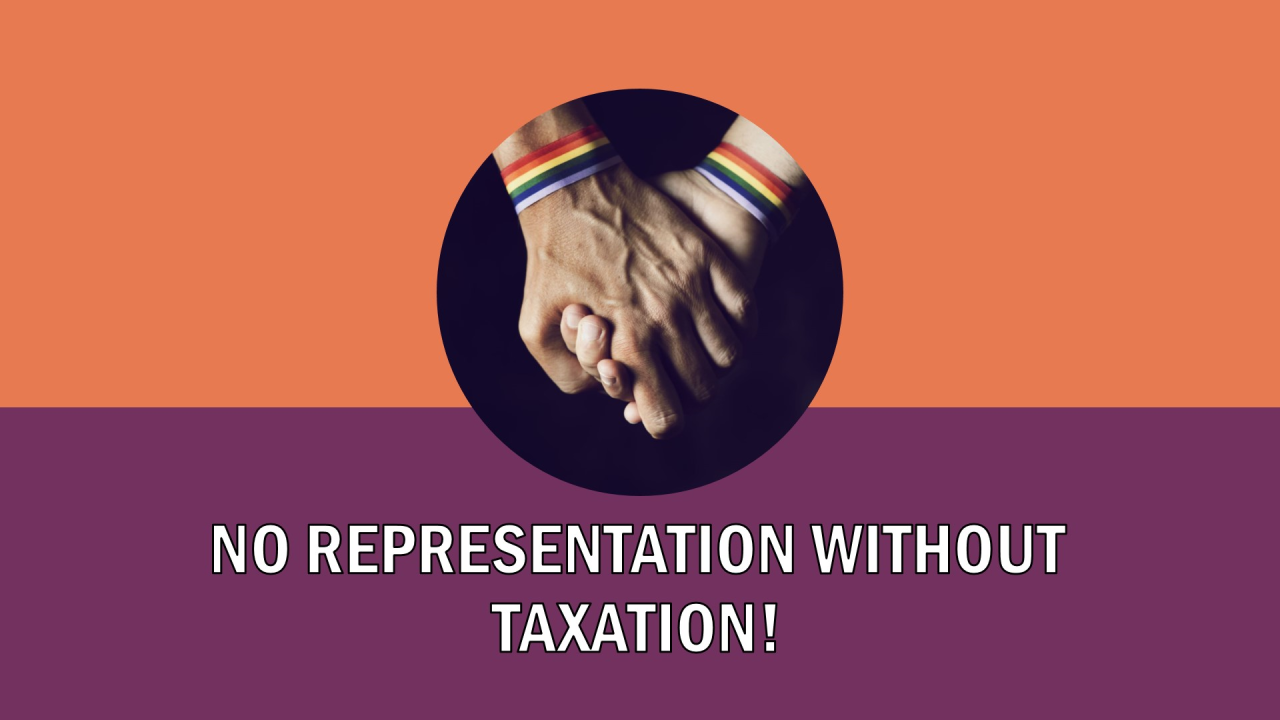Christian Groups: No Representation Without Taxation!
There has been a lot of debate surrounding the Same-Sex marriage case at the Supreme Court. The debate intensified last week when a bill was presented on the parliament floor to codify same-sex marriage into our Civil Code. The bill ended up deadlocked, with ten votes “pro” and ten votes “against.” The missing vote to complete 21 was from a parliament member who lacked the fortitude and courage to take a stance. Procedurally, the bill must be brought to the floor again for another vote. If and when this happens is unsure. For now, the fate of same-sex marriages in Aruba and Curaçao will remain in the hands of the Supreme Court, which is docketed to rule on both cases on May 31st, 2024.
I look forward to the decisions and will write about the outcome and its consequences soon. Previously, I covered the cases that led up to the Supreme Court. The last article was in November 2023.
Association of Christian Churches
The Association of Christian Churches has played a peculiar role during this process. Led by a self-acclaimed pastor, Frank Daal has stirred controversy with their opposition to same-sex marriage. They claim that same-sex marriages are against their Christian beliefs. They claim to have collected 18,000 signatures supporting their position. They also claim to have written a letter to the Supreme Court asking for a decision favoring their views. Leading up to the parliament hearing, I even saw a reel in which Daal claims that rejecting the bill would be the best thing for Aruba. Daal has no standing to intervene with the Supreme Court. Neither he nor his association was a party to the court case. The Supreme Court has no legal basis to include the “Christian letter” in the case file, nor should it be allowed to influence the outcome. The letter should be returned to the sender or, to save on postage, be thrown in the paper recycling bin of the Supreme Court. Sending the letter is merely another example of Daal’s ignorance of the laws of the land and blind pretentiousness.
Constitution
Daal and his cronies are free to say what they believe. They can because they (also) can enjoy the freedom of speech. Our constitution grants every individual on this island a right and privilege. Another right Daal and company have is the constitutional right to assemble and the constitutional right to practice their religion freely. Daal and others forget – or don’t know any better – that less than 80 years ago in San Nicolas, certain refinery workers had no choice but to lie on their job application about their religion in order to get a job and had to celebrate their religious ceremonies and holidays quietly, hidden inside their homes with the curtains closed. They could not do so in public. This shows me that Daal takes the freedom of religion for granted and forgets that without those who fought before him, today, he would not be free to practice his religion.
Another constitutional right they have is to move freely around the island. In the practice of their religions, they are free to celebrate weddings. Besides that, they also have the right to enter into a civil wedding. Daal and associates also have the choice not to enter into a civil wedding. The only problem for them is that if they don’t enter into a civil wedding, they can’t claim the civil rights and other civil privileges that come with a civil wedding.
What I find contradictory and somewhat disturbing is that the Daals of the world want to enjoy all the rights and privileges that our constitution and laws provide but openly, blatantly, and in a discriminatory matter, wish to deny the constitutional rights of others when it comes to same-sex marriage. In the constitution that I read and read again before writing this column, I didn’t see any exception that would support the discriminatory practices of Daal. Ironically, what I saw in Galatians 3:28 (NIV) was:
“There is neither Jew nor Gentile, neither slave nor free, nor is there male and female, for you are all one in Christ Jesus.”
This verse emphasizes that all people, regardless of their social or cultural differences, are equal in Christ. Except I guess that Daal and his following conveniently ignore this verse.
Bible verses
Speaking of verses, this reminds me of the West Wing episode where the president questioned what seemed to be one of Daal’s allies. The president asked a Christian talkshow host, if, based on verses in the bible, he could do a number of things that are written in the bible:
I’m interested in selling my youngest daughter into slavery as sanctioned in Exodus 21:7. She’s a Georgetown sophomore, speaks fluent Italian, always cleared the table when it was her turn. What would a good price for her be?
Does the whole town really have to be together to stone my brother John for planting different crops side by side?
Can I burn my mother in a small family gathering for wearing garments made from two different threads?
I wonder if Daal is going to collect signatures also to stop the handful of farmers we have on the island from planting different crops side by side?
Delusional
Daal seems to be suffering from either the God syndrome — no pun intended — or the Napoleon syndrome. Why? Because these leaders seem to believe they speak for all of Aruba, claiming a moral authority to dictate what they think is best for the nation. This is not only misleading, but it is absolutely false. Neither Daal nor any member of their association have a legal or moral right to speak on behalf of Aruba. He has no legal basis to decide what is best for Aruba. Daal doesn’t speak on my behalf nor that of my family, nor on behalf of many of my friends, colleagues, and associates. His “18,000” signature serves no legal purpose nor gives him any legal standing. At most, he can use it as a form of mental masturbation.
Daal’s statements also reflect a fundamental misunderstanding of our constitution and the treaties protecting Daal’s freedom to practice his religion. Ironically, these Christian fanatics argue against same-sex marriage, contradicting the Constitution itself, which protects their freedom of religion. Their hypocrisy is evident in their selective interpretation of constitutional rights, asserting their beliefs while disregarding the rights of others to marry who they love.
Tax exemption churches
Daal’s positions were objectable by many community members. It has also raised questions about the “tax exempt-status” of these churches. Folks questioned if it is still justified to allow these churches to raise funds for their activities, including the salaries and benefits of pastors like Daal. How do we know these churches are not involved in money laundering? This reaction is perhaps an instinctive reaction to the discriminatory practices of the churches. Should we dismiss this suggestion and absolve the churches from the voices claiming that the churches should be taxed like everybody else? Especially if they want to take center stage in deciding or influencing the laws of the land.
No representation without taxation
In Aruba, the principle “no representation without taxation” may become relevant, given the current political climate. These religious groups, which are currently tax-exempt, have been vocal against progressive laws like those allowing same-sex marriage. This tax-exempt status allows them to wield influence without contributing financially to the national treasury, creating an imbalance in their civic responsibilities. They don’t have the right, moral or otherwise, to dictate public policy solely based on their religious beliefs, especially when they don’t contribute to the tax base like other citizens and organizations. Separating church and state is crucial to ensuring fairness and representation for all, regardless of religious affiliation or ideology.

Let’s change the law and tax churches.
These groups want to gain an outsized voice in legislative processes without shouldering their share of the financial burden that other organizations and citizens bear. If they wish to participate in shaping our policies, it is only fair that they contribute to the tax system like everyone else. Therefore, I propose that parliament consider an amendment to eliminate their tax-exempt status. I invite the ten (10) senators who previously voted against the churches’ influence to support such an amendment. To facilitate the process, I offer to draft the necessary changes to the tax laws, including the Association of Christian Churches, on a pro bono basis. This move would align these groups’ privileges with their responsibilities, ensuring they contribute to public services and government operations. By doing so, their desired influence over national policies would be balanced with their civic contributions, enhancing their credibility and aligning their interests with the greater good of Aruba. Let’s see if Daal and his accomplices in discrimination support such an initiative of law and be inclusive or continue to benefit from a tax-free ride.
Not a Christian constitution
Let us not forget that religious motivations did not drive Aruba’s push for Status Aparte and independence, nor was it driven by a Christian movement. Our constitution was drafted by individuals dedicated to reflecting the diverse values of all Arubans, not within the confines of a Christian church or under the guidance of religious leaders. The legal principles underpinning our national identity are rooted in equality, civic duty, and the collective will of all Arubans. These religious groups should recognize that their place in shaping Aruba’s laws must reflect a broader, more inclusive vision that respects the diversity of our society. Instead of imposing their specific moral standards, they should welcome changes that bring them in line with civic responsibilities, contributing their fair share of taxes and helping strengthen Aruba’s democratic institutions. This way, they can genuinely earn the right to influence policy and ensure their voices are balanced, fair, and representative of all citizens’ interests. Thus, Christian groups have no right to claim moral ownership of our constitution or assert that Aruba is theirs exclusively. Aruba’s constitution is designed to represent all its people, not just specific religious groups. The legal principles it upholds—equality, civic duty, and the collective will—are meant to serve the entire community. Therefore, religious groups should adopt a more inclusive approach that respects the diversity of our society and contributes their fair share of taxes. This would allow them to earn a rightful place in our political discussions and ensure their voices are balanced, fair, and representative of all citizens’ interests.
















